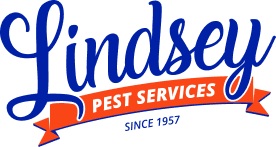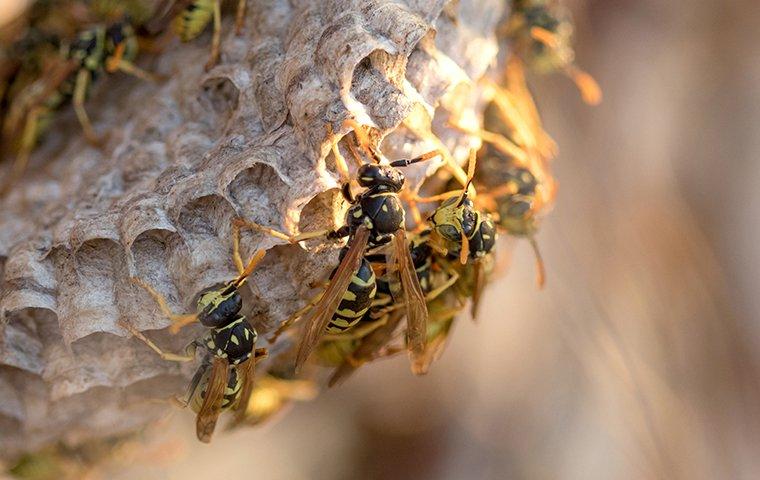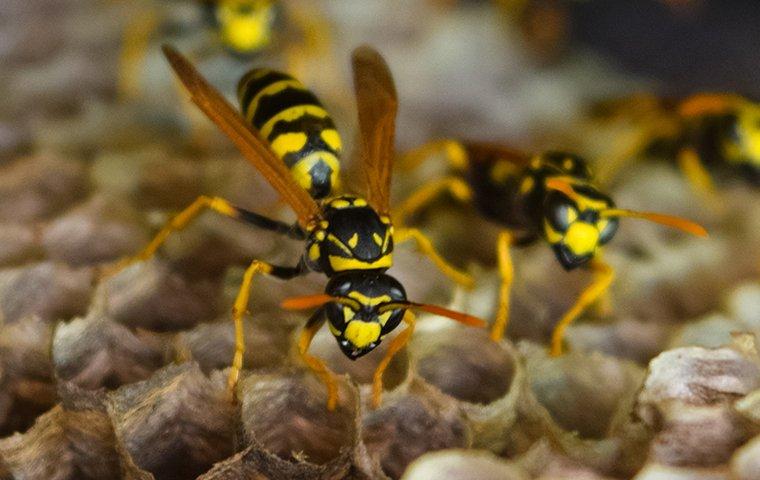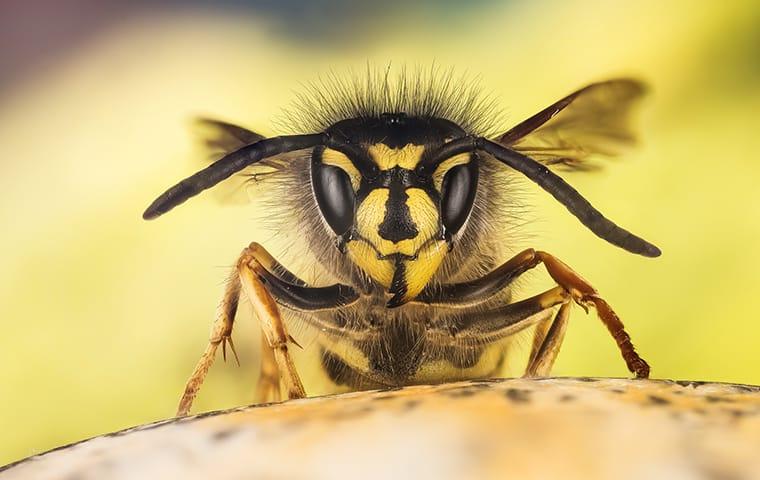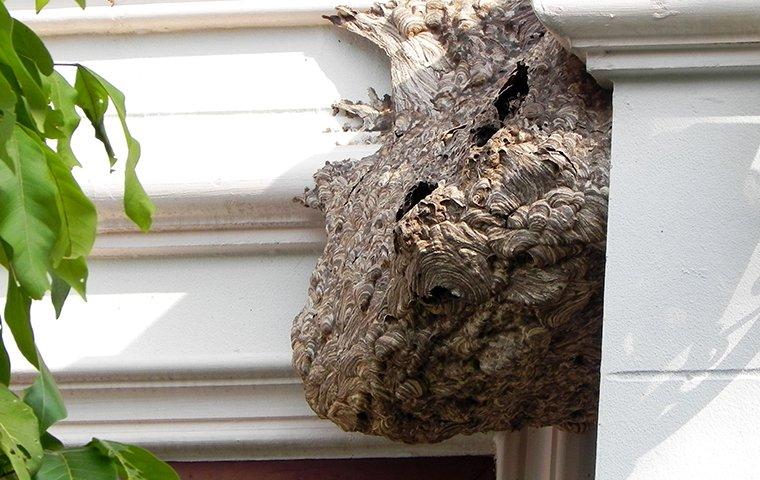Tips For Keeping Wasps Away From Your Yard And Garden Throughout The Year
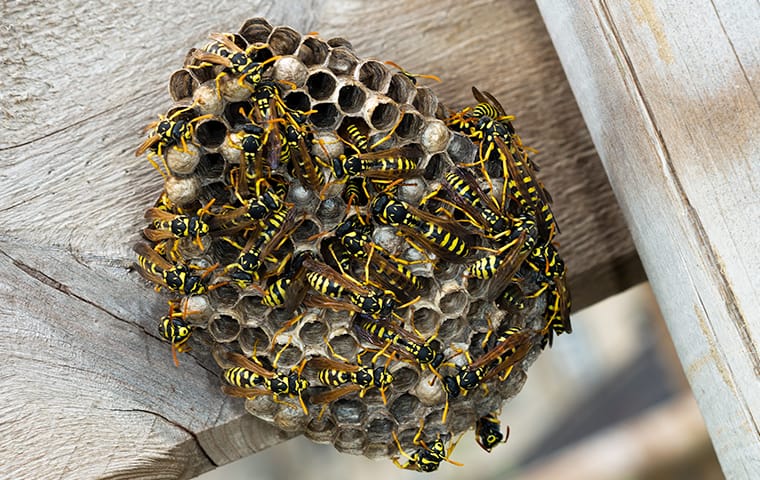
Spring (nest detection)
This is the time of year when wasps work hard to create new nests. Since social wasps have a strong nest-protection instinct, it is best to catch and eliminate wasp nests before they grow into a problem. The center of spring protection should be an inspection of your property, identification of wasp nests, and removal of those nests. Where a wasp will create her nest depends on what type of wasp it is.
- Some wasps species establish aerial nests. These can be found on tree branches, under overhangs of manufactured structures, clinging to an upper corner of an unenclosed porch, in the rafters of a barn, etc. They can also be found stuck to the side of a home.
- Some wasps create nets inside cavities. If they can find a hole in your exterior walls, they'll get in and make a nest in your wall voids. You can tell this has happened when you see wasps entering and exiting your home. These wasps can also create nests in unexpected cavities, such as the hollow spaces inside a piece of stored furniture in a shed, barn, or attic space. If you hear buzzing in a storage area, take precautions.
- Some wasps create nests in ground holes. If you have holes in your yard and see wasps entering and exiting, be careful how heavily you walk around on the ground. Vibrations can set these wasps off and cause them to swarm and sting.
Summer (moisture)
All year long, wasps grow their populations. They do this by feeding on nectar and by bringing protein back for their larvae to feed on. Protein sources usually come from caterpillars and other bugs. The more bugs you have in your yard, the more visitations you're going to have from wasps. You can reduce bugs around your home by reducing moisture. Bugs love moist environments.
- Trim tree branches to allow sunlight into areas of dense shade. This will prevent moist ground that draws bugs in.
- Put some space between your plants. This will help keep your topsoil dry after watering.
- Clean your gutters and make sure rainwater is being channeled down and away from your home. This will prevent dampness near your home.
Fall (exclusion)
As winter approaches, wasps prepare newly hatched female wasps for overwintering. After the first hard frost, wasp nests will die, and all of the workers will die with them. Only the future queens survive. These future queens can be found searching homes for a place to hide from the approaching winter chill. Your goal should be to keep them from getting in.
- Do an inspection of all the door and window screens on your home. Repair holes or replace screens to keep overwintering female wasps out.
- Inspect your exterior walls and roofline. If you find a gap, crack, or hole, seal it or fill it to keep those future queens from tucking themselves away for the winter. This will reduce your chances of having a spring nest established in your yard.
Wasp Management
For the best wasps control on your property, a residential pest control service is the way to go. When you have routine visits from an educated and experienced pest professional, you get appropriate treatments in every season of the year, so bug populations are significantly reduced, and wasps are reduced along with them. Your residential pest control will also come with a detailed inspection for fast detection of wasps' nests. If you live in the Greater Jacksonville area, we'd like you to know that Lindsey Pest Services is a trusted pest control provider with a 5-star average rating on Google and a long list of credentials. You'll be in good hands with the team at Lindsey. We have a strong track record for achieving results. Reach out to us today and request a free inspection to get started.
Get Your Free Pest Control Quote Today!
Complete the form below to get started with your free, no-obligation quote, and a Lindsey Pest representative will contact you shortly.
Same Day Service Available!

Blog Posts
